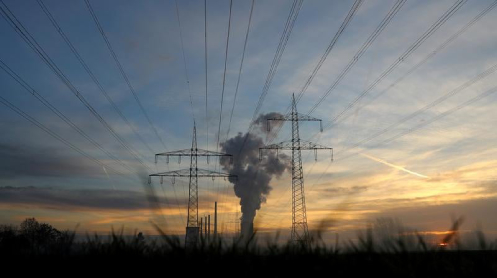Pakistan has been facing a severe energy crisis for several years, leading to a decline in GDP, loss of jobs, and an increase in poverty. The country has a vast potential for energy generation, including hydropower, wind power, solar power, and biomass, but the government has failed to tap into these resources. Instead, the government has relied heavily on imported oil, coal, and LNG, which has resulted in a significant increase in the country’s import bill. This lack of planning, mismanagement, nepotism, and corruption in the energy sector has contributed significantly to Pakistan’s economic collapse, affecting even the military establishment.
One of the primary reasons for the energy crisis in Pakistan is the mismanagement of energy resources. The energy mix is heavily skewed towards expensive fossil fuels, which has made it challenging to produce affordable energy for the masses. Nepotism and corruption have played a significant role in appointing unqualified CEOs at energy departments, resulting in mismanagement and inefficiency. The circular debt problem, capacity payments, and the appointment of unqualified persons as heads of energy departments have also contributed to the energy crisis in Pakistan.
The circular debt problem arises when power producers do not receive timely payments from distribution companies, leading to a shortage of funds for power generation. The government has been unable to resolve the circular debt problem, which has led to a reduction in power generation capacity, resulting in power shortages and blackouts. Capacity payments to power producers, regardless of whether they are generating electricity or not, have led to a situation where the government is paying for idle capacity, resulting in an increase in the cost of electricity.
Moreover, the government has failed to address the issue of energy theft, which has resulted in massive losses for the energy sector. The country’s distribution companies are unable to recover the cost of electricity from consumers due to widespread electricity theft. The government has been unable to address the issue of energy theft due to a lack of political will and poor law enforcement.
The energy crisis has also resulted in a decline in industrial production, which has led to a decrease in exports. The country’s industries have been unable to operate at full capacity due to power shortages, which has resulted in a decrease in output. The decrease in output has led to a decline in exports, which has had a significant impact on the country’s foreign exchange reserves. The energy crisis has also led to a decrease in foreign investment, as investors are hesitant to invest in a country with an unreliable power supply.
The lack of investment in alternative energy sources has resulted in a missed opportunity for Pakistan. The country has the potential to become a leader in alternative energy sources, given its vast potential for renewable energy. However, the government has failed to provide incentives to investors to invest in these sources of energy. The lack of investment has resulted in a situation where the country is heavily reliant on expensive fossil fuels, which has had a significant impact on the economy.
The government has attempted to address the energy crisis in Pakistan through various measures, including the China-Pakistan Economic Corridor (CPEC), but there is still a long way to go. The government needs to address the root causes of the energy crisis, including mismanagement, nepotism in appointments in departments like AEDB and PPIB, and corruption in the energy sector. The government must also provide incentives to investors to invest in alternative energy sources to reduce the country’s reliance on expensive fossil fuels.
In conclusion, Pakistan’s energy crisis has had a significant impact on the country’s economy, leading to a decline in GDP, loss of jobs, and an increase in poverty.
The government has attempted to address the energy crisis in Pakistan through various measures. One such measure is the China-Pakistan Economic Corridor (CPEC), which aims to improve infrastructure, including energy infrastructure, in Pakistan. Under CPEC, China has committed to investing billions of dollars in energy projects, including coal-fired power plants, hydroelectric projects, and wind and solar power projects. However, the reliance on fossil fuel-based energy sources under CPEC has raised concerns about the environmental impact of these projects and their sustainability in the long run.
Another measure taken by the government to address the energy crisis is the introduction of renewable energy policies. In 2019, the government launched the Renewable Energy Policy, which aims to increase the share of renewable energy in Pakistan’s energy mix. The policy provides incentives to investors to invest in renewable energy projects. However, the implementation of the policy has been slow, and there have been concerns about the lack of coordination between different government departments.
The energy crisis in Pakistan has also affected the country’s military establishment. The military is one of the largest consumers of energy in Pakistan, and the energy crisis has severely affected its operations. The military has been forced to rely on expensive diesel generators to power its operations, which has resulted in a significant increase in costs.
In conclusion, the energy crisis in Pakistan has contributed significantly to the country’s economic collapse. The mismanagement of energy resources, nepotism and corruption in appointing CEOs and MDs at energy departments like AEDB and PPIB, circular debt, capacity payments, and the appointment of unqualified persons as heads of energy departments have all contributed to the crisis. The lack of investment in alternative energy sources has also resulted in a missed opportunity for Pakistan. The government needs to take urgent measures to address the energy crisis, including improving energy management and governance, incentivizing investment in renewable energy, and addressing the issue of energy theft. By doing so, Pakistan can overcome the energy crisis and move towards a sustainable and prosperous future.
Written By : Dr. Basharat Hasan
Alternative Energy & Climate Change Mitigation Specialist







